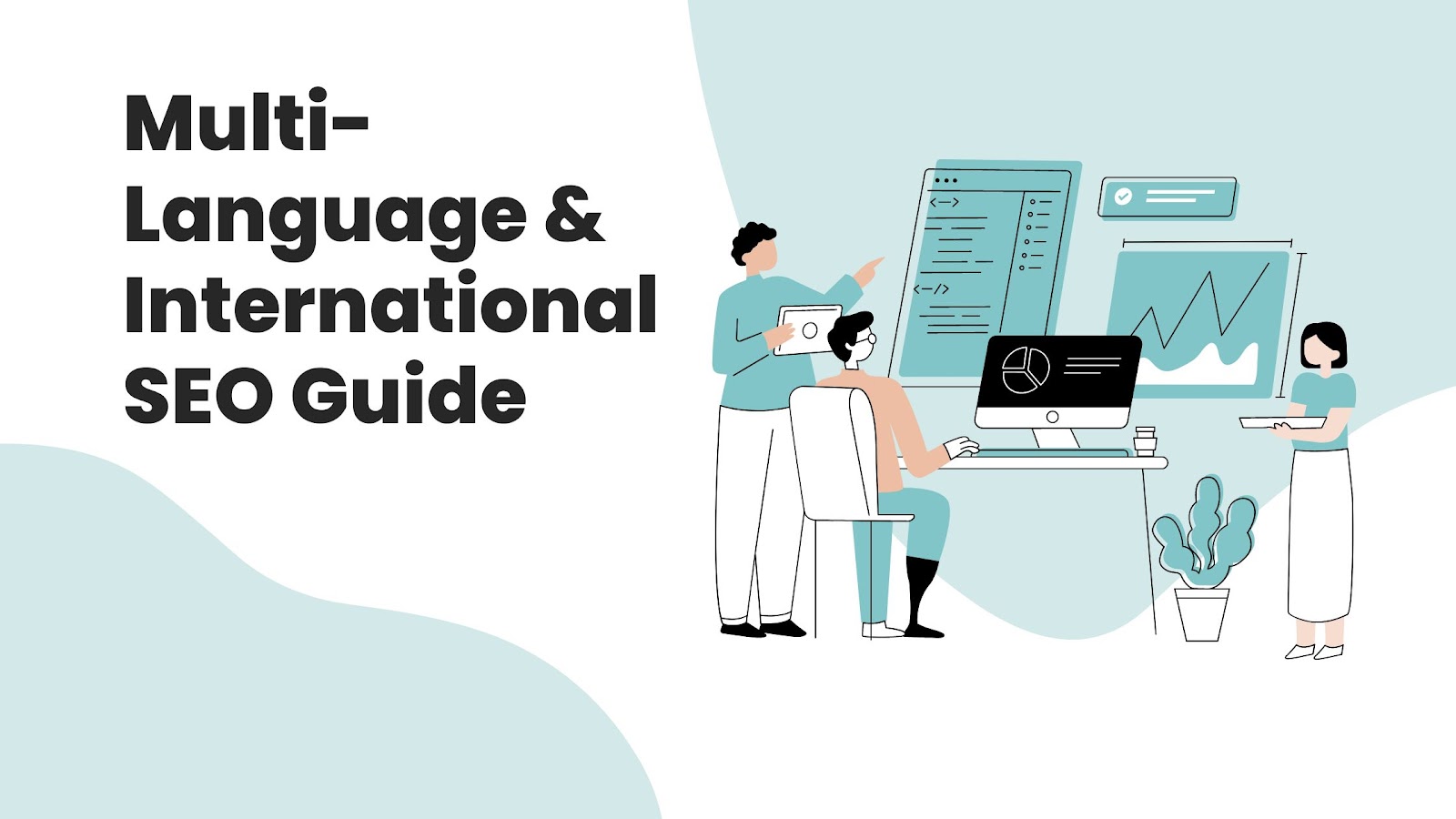SEO for Multi-language and International Websites: A Complete Guide

Introduction
In today's interconnected world, expanding your online presence beyond borders is crucial for reaching a global audience. However, simply translating your website isn't enough. To ensure visibility and attract international visitors, you need to optimize your multi-language and international websites for search engines. In this comprehensive guide, we'll explore the essential strategies and best practices for effective SEO in this context.
Understanding International SEO
International SEO involves optimizing your website to target specific languages, regions, and cultures. It goes beyond local SEO by considering the nuances of different markets. By tailoring your website to international audiences, you can increase visibility, attract qualified traffic, and improve user experience.
Website Structure and Technical Considerations
The foundation of successful international SEO lies in the proper structure and technical setup of your website. Choose a URL structure that allows for easy language and regional targeting. Implement hreflang tags to signal search engines about language variations and regional targeting. It's also crucial to handle language encoding and characters correctly. Additionally, prioritize mobile-friendliness and responsive design to cater to users across devices and locations.
Keyword Research and Localization
Effective keyword research is vital for each target language. Conduct in-depth keyword research to identify localized search terms and understand search intent in different markets. Collaborate with professional translation and localization services to ensure your content resonates with the target audience. Localize meta tags and alt attributes to improve relevancy and keyword optimization.
Content Localization and SEO
Creating high-quality, relevant content is key to engaging international visitors. Localize your content by optimizing titles, headings, and body text with localized keywords. Leverage hreflang tags to indicate language variations of your content and guide search engines to the right version. Encourage user-generated content and testimonials in multiple languages to enhance credibility and engagement.
Link Building and Off-Page Optimization
Building a strong international backlink profile is essential for SEO success. Focus on international link building strategies by leveraging local directories, industry-specific directories, and regional websites. Utilize social media platforms and influencer marketing to connect with your target audience globally. Earning backlinks from reputable international websites can significantly boost your search rankings.
Monitoring and Analytics
Regularly monitor and analyze the performance of your international website to track progress and make data-driven decisions. Utilize tools like Google Search Console to monitor international SEO metrics and identify areas for improvement. Localize and track key performance indicators (KPIs) relevant to each market. Conduct regular audits to ensure your international SEO strategies remain effective.
Conclusion
Expanding your online presence to international markets requires thoughtful planning and execution. By implementing the strategies outlined in this guide, you can optimize your multi-language and international websites for better search engine visibility, attract a global audience, and drive targeted traffic. Remember to prioritize providing a great user experience, leveraging localized keywords and content, and building a strong international backlink profile. Stay vigilant, track your progress, and make adjustments as needed to ensure long-term success in the international SEO landscape.
FAQs
How important is international SEO for websites targeting a global audience?
International SEO is crucial for websites targeting a global audience as it helps improve visibility, attract qualified traffic, and enhance user experience by optimizing the website for different languages, regions, and cultures.
What are some technical considerations for optimizing multi-language websites?
When optimizing multi-language websites, it's important to choose the right URL structure, implement hreflang tags to indicate language variations, handle language encoding correctly, and ensure mobile-friendliness and responsive design for a seamless user experience.
How can I conduct effective keyword research for different languages?
To conduct effective keyword research for different languages, it's important to analyze localized search terms, understand search intent in various markets, and collaborate with professional translation and localization services to ensure the relevance and effectiveness of the chosen keywords.
What strategies can I use to localize and optimize content for international audiences?
To localize and optimize content for international audiences, focus on optimizing titles, headings, and body text with localized keywords, utilize hreflang tags to indicate language variations, encourage user-generated content and testimonials in multiple languages, and ensure cultural sensitivity and relevance in the content.
How can I build a strong backlink profile for international SEO?
Building a strong backlink profile for international SEO involves leveraging local directories, industry-specific directories, and regional websites, utilizing social media platforms and influencer marketing to connect with the target audience globally, and earning backlinks from reputable international websites to enhance search rankings.
What tools can I use to monitor and analyze the performance of my international website?
Tools like Google Search Console can be utilized to monitor international SEO metrics, track progress, and identify areas for improvement. Additionally, it's important to localize and track key performance indicators (KPIs) relevant to each target market to ensure the effectiveness of your international SEO strategies.
How can I ensure a great user experience for international visitors?
Prioritize providing a user-friendly design, fast loading speed, and mobile-friendliness for international visitors. Localize the website's content, navigation, and customer support to cater to their specific needs and preferences, ensuring a seamless and enjoyable experience.
What are the key considerations for maintaining credibility and trust in international SEO?
To maintain credibility and trust in international SEO, it's essential to provide accurate information, cite credible sources, avoid factual errors, and demonstrate expertise through clear sourcing. By prioritizing reliable and helpful content, you can establish yourself as a trusted authority in the SEO niche.
Comments
Post a Comment